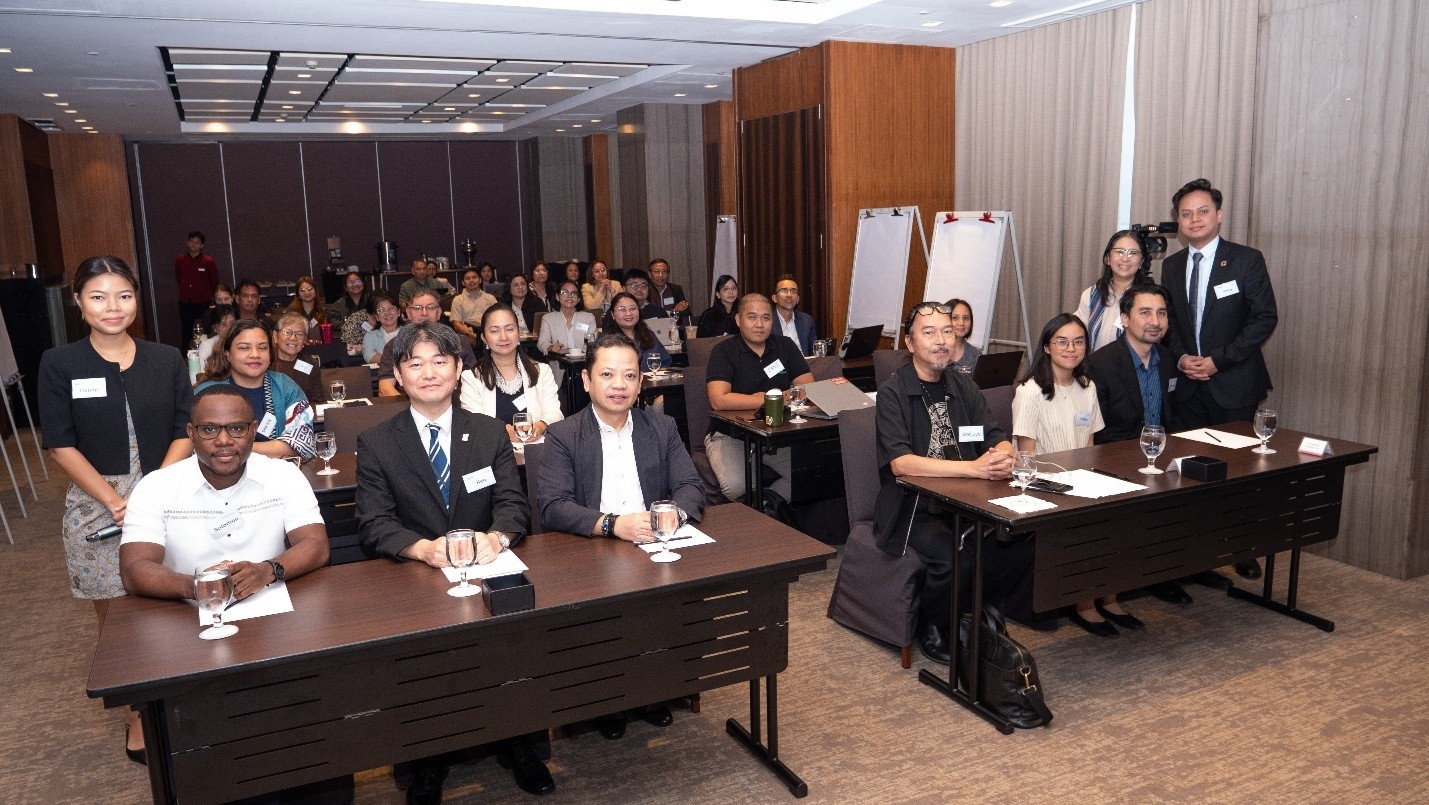
Kuala Lumpur, 14 October 2025: At the ASEAN Conference on Combatting Plastic Pollution (ACCPP) 2025, held under the theme All Hand on Deck: Uniting Forces for a Sustainable Plastic Future, the Behaviour Lab Partnership was officially launched.
The five founding members of the Behaviour Lab came together in a plenary session (Session 5: The Science of Change – Launching the Behaviour Lab Partnership in ASEAN) to present a dialogue on the benefits and opportunities of applied behavioural science in reducing plastic consumption and waste.
Economic Research Institute for ASEAN and East Asia (ERIA)
Deutsche Gesellschaft für Internationale Zusammenarbeit (GIZ) GmbH
Institute for Global Environmental Strategies (IGES)
Rare’s Center for Behavior & the Environment (Rare’s BE.Center)
World Wildlife Fund’s Plastic Smart Cities (WWF PSC)
A growing body of research and practice from around the world has demonstrated that when applied effectively, behavioural science can be a powerful tool for tackling plastic pollution. Yet, until recently, limited research has been conducted in the ASEAN region to guide policymakers, businesses, and practitioners in developing science-based approaches that reflect the region’s unique socio-economic context.
In response to this gap, the Behaviour Lab’s five founding partners united to form this official partnership. The five organisations are committed to creating tangible and meaningful impact in behavioural science while working alongside stakeholders across ASEAN to develop regional good practices and contribute to the global dialogue.
More concretely, the partnership seeks to:
Promote knowledge exchange and joint learning within and between the public, private, and civil sectors.
Strengthen inter-organisational collaboration across the ASEAN region in support of sustainable plastics behaviour change.
Co-develop materials that support policy change, public awareness, sustainable business models, and capacity building across sectors.
To formalise the collaboration, the five organisations signed a Memorandum of Understanding (MoU) earlier in October 2025. This MoU confirms their shared commitment for the next three years, during which the partners will organise joint events, coordinate actions, conduct research, and mobilise external funding to support their shared mission.
As part of this collaboration, a dedicated webpage will be created on ERIA’s Regional Knowledge Centre website. Designed with a shared visual identity, the webpage will serve as a hub for practical and easy-to-understand resources.
Kuala Lumpur, 14 October 2025: At the ASEAN Conference on Combatting Plastic Pollution (ACCPP) 2025, held under the theme All Hand on Deck: Uniting Forces for a Sustainable Plastic Future, the Behaviour Lab Partnership was officially launched.
The five founding members of the Behaviour Lab came together in a plenary session (Session 5: The Science of Change – Launching the Behaviour Lab Partnership in ASEAN) to present a dialogue on the benefits and opportunities of applied behavioural science in reducing plastic consumption and waste.
Economic Research Institute for ASEAN and East Asia (ERIA)
Deutsche Gesellschaft für Internationale Zusammenarbeit (GIZ) GmbH
Institute for Global Environmental Strategies (IGES)
Rare’s Center for Behavior & the Environment (Rare’s BE.Center)
World Wildlife Fund’s Plastic Smart Cities (WWF PSC)
A growing body of research and practice from around the world has demonstrated that when applied effectively, behavioural science can be a powerful tool for tackling plastic pollution. Yet, until recently, limited research has been conducted in the ASEAN region to guide policymakers, businesses, and practitioners in developing science-based approaches that reflect the region’s unique socio-economic context.
In response to this gap, the Behaviour Lab’s five founding partners united to form this official partnership. The five organisations are committed to creating tangible and meaningful impact in behavioural science while working alongside stakeholders across ASEAN to develop regional good practices and contribute to the global dialogue.
More concretely, the partnership seeks to:
Promote knowledge exchange and joint learning within and between the public, private, and civil sectors.
Strengthen inter-organisational collaboration across the ASEAN region in support of sustainable plastics behaviour change.
Co-develop materials that support policy change, public awareness, sustainable business models, and capacity building across sectors.
To formalise the collaboration, the five organisations signed a Memorandum of Understanding (MoU) earlier in October 2025. This MoU confirms their shared commitment for the next three years, during which the partners will organise joint events, coordinate actions, conduct research, and mobilise external funding to support their shared mission.
As part of this collaboration, a dedicated webpage will be created on ERIA’s Regional Knowledge Centre website. Designed with a shared visual identity, the webpage will serve as a hub for practical and easy-to-understand resources.

Programme Manager


